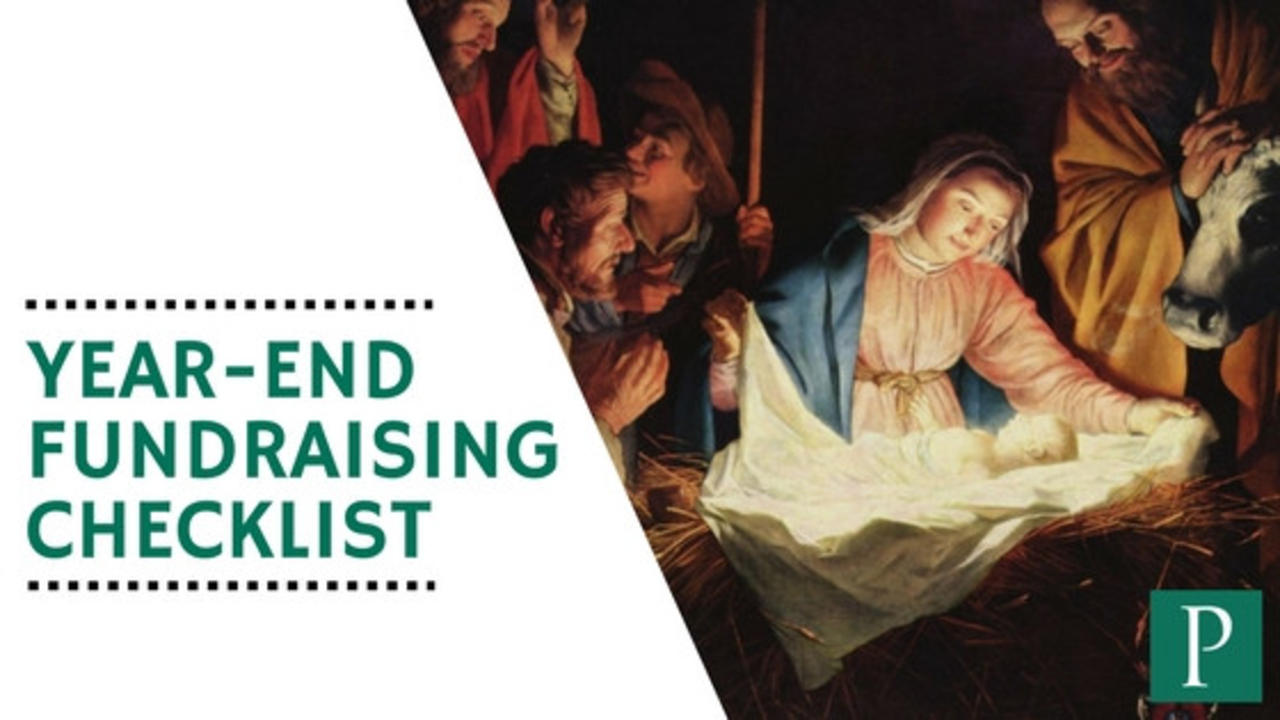10 Essential Year-End Catholic Fundraising Tips to Maximize Donor Engagement

As we approach the end of the calendar year, Catholic fundraisers are in full swing. Studies show that 30% of all annual giving takes place in December (and 10% in the last three days of the year!). Development teams have reason to be active. Here are ten donor-centric ideas to help you maximize revenue and strengthen relationships during this critical period.
Engage Major Donors Early for Year-End Success
Knowing when your major donors typically give to your organization is crucial. Run reports and check your data to identify any lapsed donors. Instead of waiting until January to reach out, contact them now and invite their renewal before December 31. Many donors appreciate the reminder, especially if they’re busy during the holiday season. Remember to highlight what your organization will achieve with their gift—emphasizing mission impact can motivate them to give.
Diversify Your Fundraising Channels Beyond Direct Mail
While direct mail appeals are important, don’t rely solely on them. People give to people—not paper. Major donors, in particular, may set aside appeal packages in anticipation of a personal ask. Never assume the check will arrive on its own. Diversify your revenue streams by incorporating online giving, monthly recurring donations, and targeted email campaigns.
Personal Touches: Sending Advent or Christmas Cards
Send Advent or Christmas cards to as many donors as your budget allows. For major donors, have the Director, CEO, or Chaplain personally hand-sign the cards. Ensure that the card design reflects your mission. Donors appreciate the personal touch, and homemade cards are often cherished.
Thoughtful Christmas Gifts for Major Donors
While extravagant gifts may be viewed as wasteful, thoughtful gifts can leave a lasting impression. For your major donors, consider sending a framed photo of your mission in action, a prayer or Mass bouquet, or a keepsake ornament. These small tokens of appreciation can strengthen donor relationships.
Stay on Top of Print/Mail Deadlines
As the year ends, it's easy to fall behind on deadlines. Ensure all artwork, mailing lists, and postage for the first quarter of the upcoming year are finalized now. Staying on schedule with your solicitation plan is crucial for maintaining donor engagement.
Consider a No-Ask Mailing
Sometimes, it’s important to express gratitude without asking for donations. Segment your low- to mid-range donors and send them a simple letter of thanks for their support throughout the year. This no-ask mailing can build goodwill and increase the likelihood of a future gift, such as during Lent.
Ensure Easy Online Donation Options
Many donors “blitz donate” online on December 31. Ensure that your website has a clear and easy-to-find online donation option. If donors can't quickly locate your giving page, they might move on to another cause.
Keep Social Media Active During the Holidays
With more people spending time online during the holidays, keep your social media channels active. Share photos, stories, and impact facts to engage your audience and encourage year-end donations. Social media is a powerful tool to reach new donors and remind existing ones of your mission’s importance.
Prompt Gift Acknowledgements
Turn around gift acknowledgements within 48 hours. While this might require extra effort during the busy season, donors greatly appreciate a prompt, sincere, and informative thank you letter. Aim to have all acknowledgments sent out before January 15.
Take Time to Give Thanks
Finally, take a moment on December 25 to thank the Lord for the generous support your organization has received. Pray for your donors’ needs and ask for God’s continued blessings on them and your mission.
By following these tips, you can make the most of your year-end fundraising efforts, ensuring both immediate revenue and long-term relationships.
Interested in a Year-End Fundraising Checklist?
Click below for a well-organized task list for the month of December.
Mark Randall, CFRE is the Executive Director of Pontifical North American College (Rome). In this role, Mark oversees all US-based operations for the largest American seminary, which is based in Rome, Italy. His key areas of responsibility include management of the team, fundraising strategy, communications and marketing initiatives, and close collaboration with the PNAC alumni association of over 4,000 living priests in the US, Canada, and Australia.
READY TO BECOME A BETTER FUNDRAISER?
Sign up below to receive tools, ideas, and inspiration to take your development efforts to the next level.
We hate SPAM. We will never sell your information, for any reason.


